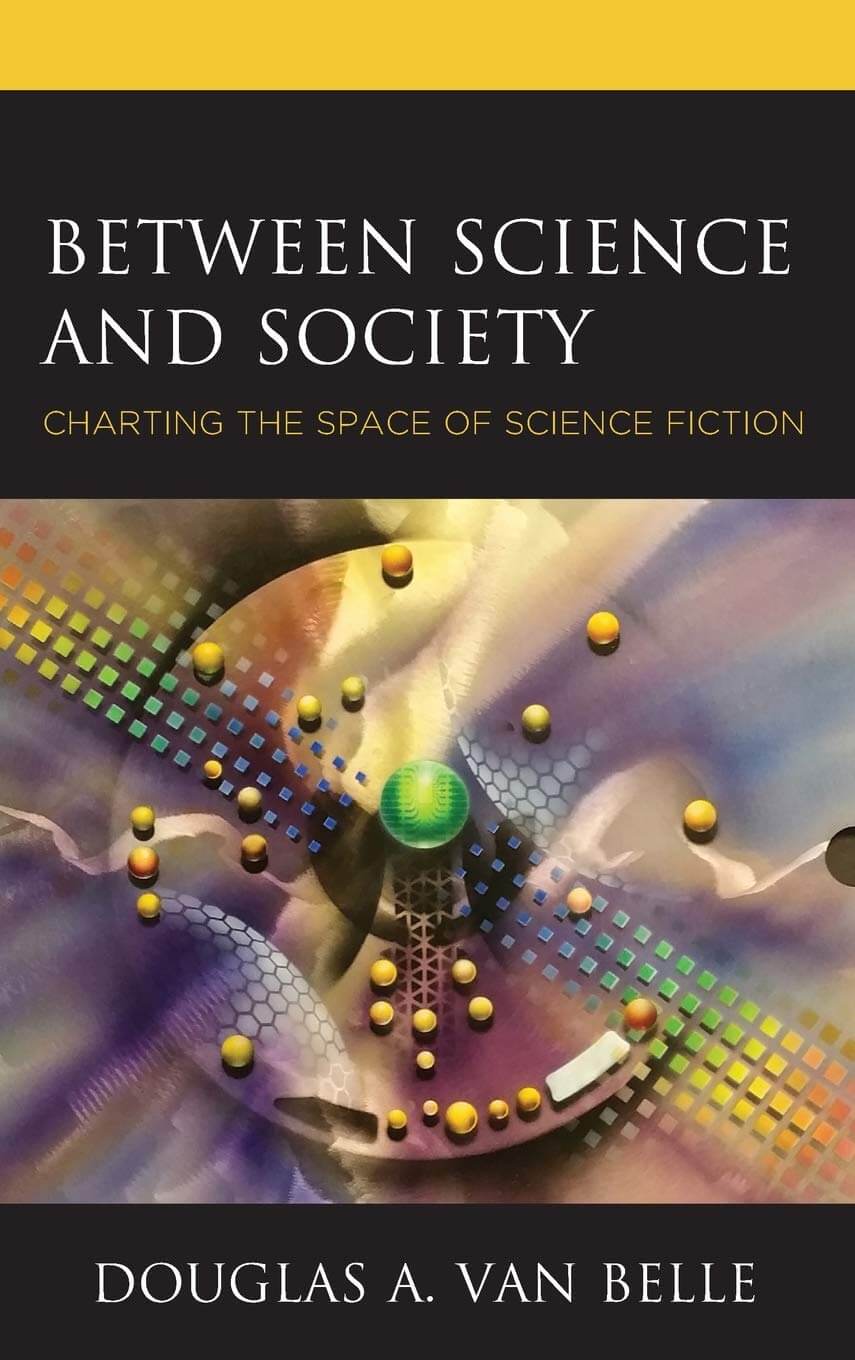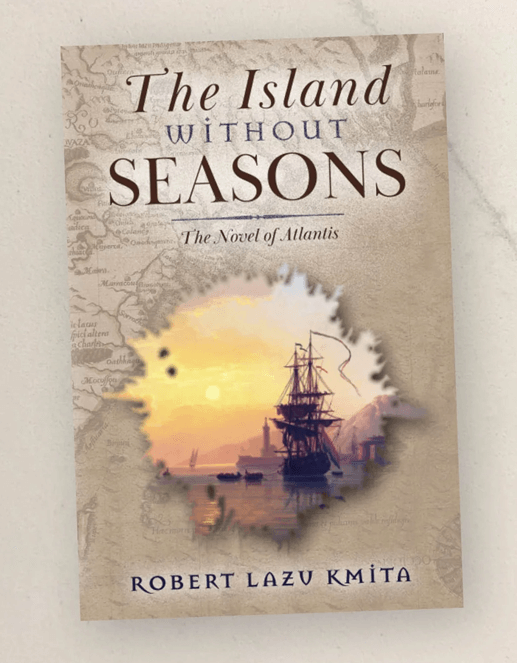Between Science and Society: Charting the Space of Science Fiction

Between Science and Society: Charting the Space of Science Fiction. Douglas A. Van Belle. Lanham, MD: Lexington Books, 2021.
Between Science and Society starts with a bang: author Douglas A. Van Belle quotes several science fiction authors who disparage the academics that write about them. Many of these authors clearly see themselves as treated with disdain by literature scholars and heartily return that disdain, one saying such scholars “hate it because they can’t understand it” and another referring to many academics’ “myopic stupidity.[1]
These quotations effectively set up Van Belle’s project. After referencing the common academic perspective that the intent of authors is relatively unimportant, he explains how he has centered his book entirely around the authors of science fiction themselves and their own views about what they are doing in their work. Van Belle makes the case for this concentration on authors’ views well. After these issues are dealt with in the introduction, the book is overwhelmingly made up of summaries of interviews with a couple dozen prominent science fiction authors, presented in alphabetical order. Only after these summaries does the author focus on his own analysis of these interviews in five relatively brief concluding chapters.
Such an organization has obvious limitations. It would have been nice to see, at the outset of the book, more of the author’s organizing thoughts and reasons for asking the interview questions he asked, and perhaps he could have imposed more of his own ideas to structure the entire project. For example, Van Belle asks each author about their “teachable moments,” but they interpret this in a wide variety of ways, and he apparently does not clarify or further direct them. And so, the book lacks a clear set of arguments propelling it forward; it proceeds more inductively than deductively, with some broader ideas emerging only gradually from the interviews. Nonetheless, almost anyone with an academic or personal interest in science fiction will find this interview material very compelling. It presents a wealth of source material for future research in the field, on topics including what the definition of science fiction is and how these writers view their relation to science.
Regarding the interviews, the author is quite transparent on his process and explains how the interviews were conducted, mostly at conferences that the interviewees were attending. The authors interviewed are a high-quality, distinguished group. It would have been preferable if they were more diverse. There are only a few women, and the authors are mostly born and raised in the 1940-1960s; very few are younger.
Is this book, which is included in Lexington Books’ “Politics, Literature, & Film” series and is from an author who has researched using science fiction in teaching politics, a work about politics? The answer is yes, but more implicitly than explicitly. Each science fiction author is asked about the relationship of science and society, which is certainly a political question, and some of the authors are explicit in viewing their writing as being about the social/political world as influenced by science and technology. Science fiction as a way to warn society is one political theme that emphasized by authors such as Ben Bova and Nancy Kress. For example, Bova says
If you think of human history as a vast migration of billions of people across the landscape of time, then science fiction writers are the scouts. We’re the ones that go on up ahead and bring back reports like: Don’t go there it’s a big swamp, try going this way instead, this is a good place. Unfortunately most of our leaders don’t read science fiction and we keep ending up in the swamps.[2]
This quote gives a flavor of some of the many entertaining and insightful insights from the authors interviewed. But the specific political ideas of these authors and political themes in science fiction are not as much developed as one might expect from a book in this series.
Through the interviews, one of the issues that emerges most clearly is that the definition of science fiction is unclear and contested. Different authors define it differently, and a few do not even call themselves science fiction writers. Van Belle picks up on this in his concluding chapters, and he attempts to map out the space in which science fiction operates.
Relatedly, some of his interview questions are about how the authors portray scientists and whether they compromise on science. He finds that almost all of the authors take science very seriously and try to compromise scientific principles only a little or not at all. Thus, part of Van Belle’s definition is to place science fiction on a continuum of “accuracy of the representation of science.” On one extreme is “corporate and political anti-science propaganda” and on the other end of the continuum is science news reporting and science research. In between is science fiction, which is “forthright” in its depiction of science, but neither “deceptive” or “dedicated,” his words to describe the two ends of the spectrum[3]
On top of this aspect of the definition of science fiction, Van Belle adds audience engagement and storytelling, two aspects of science fiction that emerged strongly in his interviews. Many of the authors spoken to emphasized that, without an engaging story, little else matters. Thus, the space that science fiction occupies is defined by all the above factors.
An interesting point that Van Belle makes in his concluding chapters is that the science fiction community of writers and fans greatly values both the quality of writing and storytelling and the quality and plausibility of the science. Without the latter, a story is fantasy or some other genre, and it does not perform the same functions, such as the one Bova describes above. Critics, Van Belle argues, tend to greatly value writing and storytelling but not the scientific aspects, and that causes some of the tension between the critical/academic community and the science fiction community that set the tone for the book at the start.
Overall, while the interview-heavy organization has its drawbacks, Between Science and Society provides a wealth of valuable information about authors’ views and nicely counterbalances other academic works that insufficiently value the authors’ perspectives.
Notes
[1] Douglas A. Van Belle, Between Science and Society: Charting the Space of Science Fiction (Lanham, MA: Lexington Books), 5.
[2] Van Belle, 51.
[3] Van Belle, 194.




